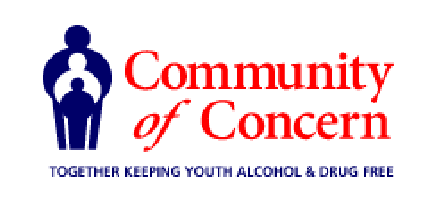Guide offers talking points for parents
Published 12:10 am Friday, December 8, 2017
Hospital, CPC, schools partner to provide drug, alcohol info
Andalusia Health has partnered with the Covington County Children’s Policy Council, Andalusia City Schools and Covington County Schools to give parents the tools they need to talk with their children about alcohol, tobacco and drug use.
 “We know that parents want to have a conversation with their kids, but many of them don’t know where to start,” Andalusia Health CEO John Yanes said. “This Community of Concern program began in the D.C. area, by a group of parents who wanted to raise awareness of the issues.”
“We know that parents want to have a conversation with their kids, but many of them don’t know where to start,” Andalusia Health CEO John Yanes said. “This Community of Concern program began in the D.C. area, by a group of parents who wanted to raise awareness of the issues.”
The hospital invited the three local schools systems to participate, and the Andalusia and Covington County systems opted in.
Yanes said the initial thought was to deliver the materials to the hands of middle and high school students, but he was encouraged by the Children’s Policy Council to start with the fifth grade.
“So any parent of a child fifth grade through high school, in the city or county schools, will receive this guide,” Yanes said.
The guides will be mailed, and addressed ‘to the guardian of’ each student.
“The information is broken out,” Yanes said. “First, it shares the responses when students are asked, ‘What do you want your parents to tell you about drugs and alcohol?’ ”
It also has sections with guidelines for discussing the issues with elementary, middle school, high school and college students.
“It’s written in a Q&A format,” Yanes said. “There is a section called Brain 101, about what’s happening to a developing brain, and how drugs and alcohol affects that.
“It also discusses the legal ramifications in illegal drug and alcohol use,” he said.
Yanes said the project interested him both because of the national opioid addiction crisis, and as a parent.
“As a parent myself with three kids, I’m hearing about what goes on,” he said. “We wanted to offer that resource to the community.”
Yanes said he has worked in partnership with Community of Concern in other locations.
“What triggered it initially was drug seekers in a previous hospital, but also here in our emergency department, where we see those under the influence of illicit drugs, prescription and otherwise. Like Spice, the synthetic marijuana. It has incredible effects on body,” he said. “Our team has to deal with that, so we are raising awareness.”
Yanes said drug seekers also affect the primary care others receive, as they clog up primary care clinics.
“An incredible amount of resources goes into treating someone under the influence, he said. “The time and resources spent caring for person could be spent addressing someone has a legitimate problem.”
Yanes said he believes all parents should have the conversations described in the Community of Concern literature.
“I have kids in college and high school,” he said. “Kids are getting such mixed messages. We tell them, ‘don’t do it,’ but yet, there are so many overt and subliminal messages that it is OK.”
Parents should receive the booklets this week.
***
There are e-learning tools that complement the material distributed locally available on the Community of Concern website, https://thecommunityofconcern.org.




